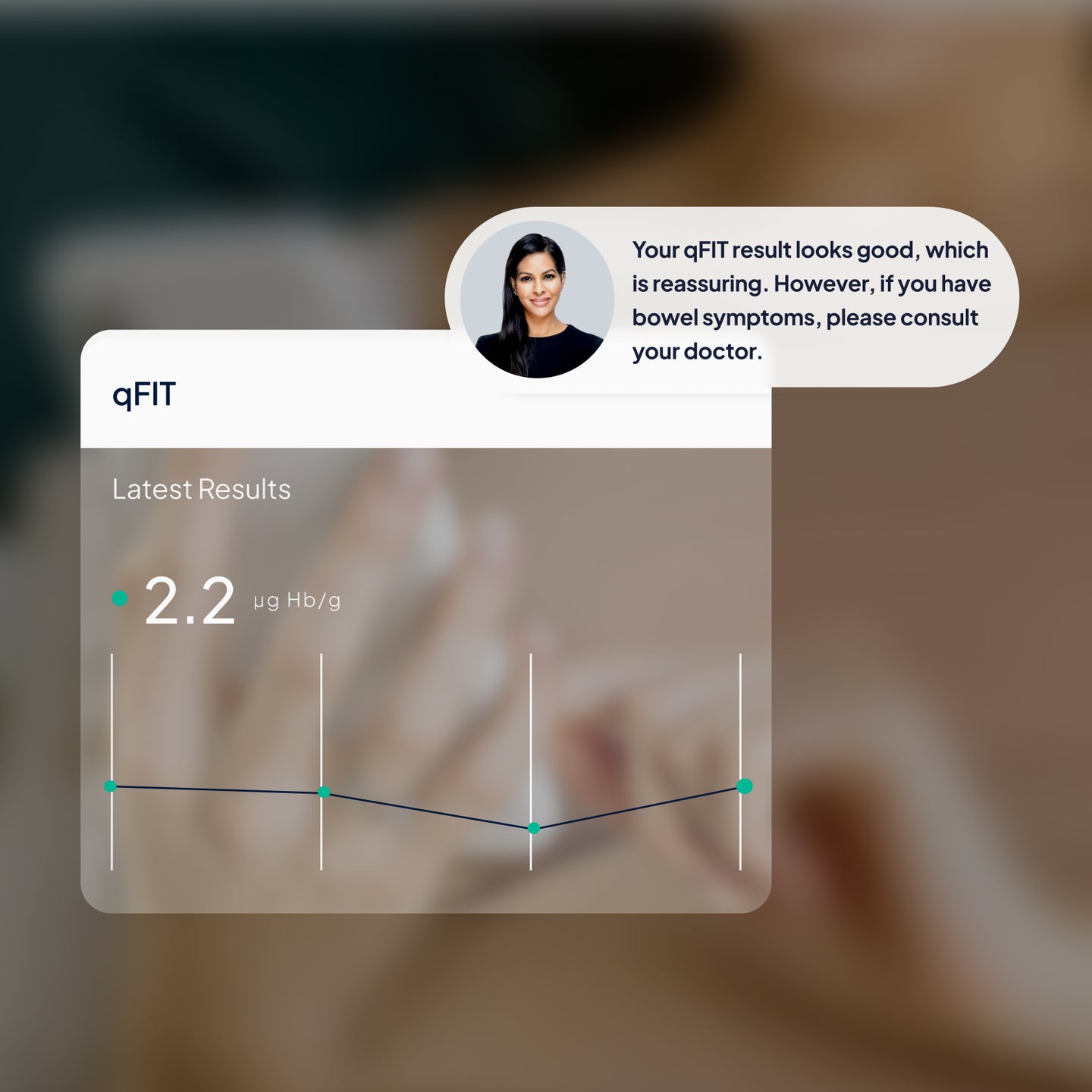Proactively monitor your bowel cancer risk with the qFIT test, as used in the NHS Bowel Cancer Screening Programme. This at-home test detects hidden blood in your stool – an early indicator of bowel conditions, including colorectal cancer. Whether you’re at higher risk or just looking for peace of mind, this test provides quick and reliable results.
Learn more about the pros and cons of the qFIT test before purchasing.




